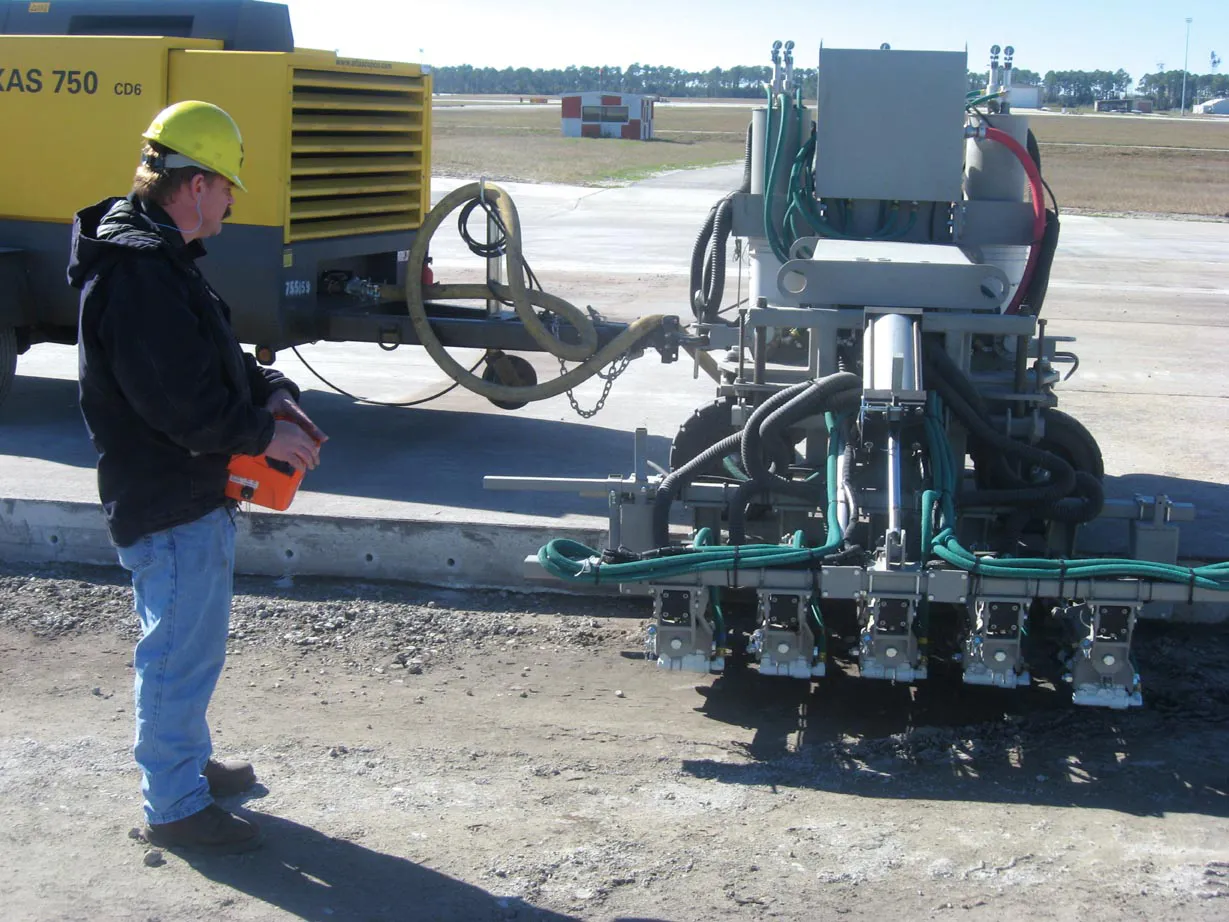The latest complement to Atlas Copco’s range of hydraulic attachments is the Hydro Magnet, a range of profitable tools for recycling plants, scrapyards and the demolition industry.
Hydro Magnets enable valuable iron and steel to be separated quickly and easily from concrete waste for subsequent recycling. Simply installed on the existing grapple or shear installation, they require no extra generator or electro cable on the carrier. Two Hydro Magnets are available in two versions, as a fixed magnet (F),
May 14, 2014
Read time: 3 mins
The latest complement to 161 Atlas Copco’s range of hydraulic attachments is the Hydro Magnet, a range of profitable tools for recycling plants, scrapyards and the demolition industry.
Hydro Magnets enable valuable iron and steel to be separated quickly and easily from concrete waste for subsequent recycling. Simply installed on the existing grapple or shear installation, they require no extra generator or electro cable on the carrier. Two Hydro Magnets are available in two versions, as a fixed magnet (F), or a mobile magnet with chain link (M). Load capacities range from 280kg up to 7.5tonnes.
In the Hydro Magnet, hydraulic power provides automatic flow and pressure control by means of a sophisticated flow divider. A high-activating voltage is said to rapidly achieve the magnetic power to attract a large amount of ferrous material and hold it firmly in place. A shock alternation of the polarity accelerates demagnetisation, resulting in fast material drop and a magnet plate free from even small pieces of steel.
The optimised weight/performance ratio and intelligent interaction between all integrated components in the attachment offers optimal handling performance. The overall result is a faster collection and loading process.
The electronically controlled generator is made of corrosion free alloy and has a digital control device in a waterproofed body. Atlas Copco’s digital generator control technology gives a magnetisation and demagnetisation process cycle that is up to 25% shorter than conventional magnet controllers. This, in turn, means lower fuel consumption. The digital control device also protects the Hydro Magnet against the risk of damage caused by short circuiting, overheating or excessively high or low revolutions of the generator.
All key components of the Hydro Magnet are integrated into a compact design and the magnet plate is made to handle rough environments. A hermetically sealed steel case protects the magnet coil against mechanical impacts and humidity, and an external Hardox steel ring protects against wear. The large steel surface compensates for temperature increases.
A multifunctional diagnostic panel in a waterproofed body indicates current working status and potential faults for trouble-shooting. No special maintenance is needed, apart from periodic control of the bolt connections and electro cable connection between the generator body and the magnet plate.
Collecting ferrous material remaining in the demolition bulk using Hydro Magnets not only means more profit, it also reduces risk of damage to crushers, conveyor belts, and other equipment. The high risk of tyre damage for trucks from rebars remaining on driveways on job sites is also substantially reduced by collecting them with Hydro Magnets.
Hydro Magnets enable valuable iron and steel to be separated quickly and easily from concrete waste for subsequent recycling. Simply installed on the existing grapple or shear installation, they require no extra generator or electro cable on the carrier. Two Hydro Magnets are available in two versions, as a fixed magnet (F), or a mobile magnet with chain link (M). Load capacities range from 280kg up to 7.5tonnes.
In the Hydro Magnet, hydraulic power provides automatic flow and pressure control by means of a sophisticated flow divider. A high-activating voltage is said to rapidly achieve the magnetic power to attract a large amount of ferrous material and hold it firmly in place. A shock alternation of the polarity accelerates demagnetisation, resulting in fast material drop and a magnet plate free from even small pieces of steel.
The optimised weight/performance ratio and intelligent interaction between all integrated components in the attachment offers optimal handling performance. The overall result is a faster collection and loading process.
The electronically controlled generator is made of corrosion free alloy and has a digital control device in a waterproofed body. Atlas Copco’s digital generator control technology gives a magnetisation and demagnetisation process cycle that is up to 25% shorter than conventional magnet controllers. This, in turn, means lower fuel consumption. The digital control device also protects the Hydro Magnet against the risk of damage caused by short circuiting, overheating or excessively high or low revolutions of the generator.
All key components of the Hydro Magnet are integrated into a compact design and the magnet plate is made to handle rough environments. A hermetically sealed steel case protects the magnet coil against mechanical impacts and humidity, and an external Hardox steel ring protects against wear. The large steel surface compensates for temperature increases.
A multifunctional diagnostic panel in a waterproofed body indicates current working status and potential faults for trouble-shooting. No special maintenance is needed, apart from periodic control of the bolt connections and electro cable connection between the generator body and the magnet plate.
Collecting ferrous material remaining in the demolition bulk using Hydro Magnets not only means more profit, it also reduces risk of damage to crushers, conveyor belts, and other equipment. The high risk of tyre damage for trucks from rebars remaining on driveways on job sites is also substantially reduced by collecting them with Hydro Magnets.








